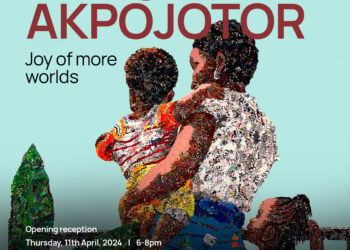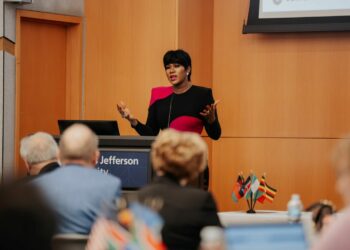Ramadan, the ninth month of the Islamic lunar calendar, is a sacred time for Muslims around the world. It is a period of fasting, prayer, reflection, and community. For those unfamiliar with Ramadan customs, navigating the etiquette surrounding this observance may seem daunting. Understanding and respecting Ramadan etiquette is essential for fostering mutual understanding and building bridges between communities, whilst celebrating the diversity that enriches our nation among people of different faiths and cultures.
Here is our Etiquette guide to navigating Ramadan in Northern Nigeria.
i. Cultural Sensitivity
Northern Nigeria is predominantly Muslim and Ramadan holds immense significance to the community. Ramadan in Northern Nigeria is a vibrant and deeply spiritual time, marked by unique customs and traditions that reflect the region’s rich cultural heritage and strong Islamic identity. Respect cultural sensitivities, especially regarding religious activities, and be mindful of appropriate conduct when interacting with individuals of the opposite gender (gender segregation). Observing Ramadan etiquette in Northern Nigeria involves understanding and respecting these local customs while embracing the spirit of unity, compassion, and devotion.
ii. Awareness of fasting
Muslims observe fasting from dawn until sunset during Ramadan, abstaining from food, drink, smoking, and other physical needs. It is important to be mindful of this practice and avoid eating, drinking, or smoking in public spaces during daylight hours out of respect for those fasting. Individuals and businesses should be mindful of drinking and serving alcohol, especially if you live within a Muslim community during Ramadan.
iii. Respectful Greetings and Phrases
During Ramadan, it is customary to greet Muslims with “Ramadan Mubarak” or “Ramadan Kareem,” which translates to “Blessed Ramadan” or “Generous Ramadan,” respectively. These greetings convey goodwill and respect to Muslims for the significance of the month of Ramadan. Some other phrases you will hear more often during Ramadan include:
* Iftar : the meal eaten by Muslims at sunset during Ramadan. *Sahur – the pre-fasting meal before sunrises.
* Maghrib prayer : the fourth prayer of the day at sunset.
* Taraweeh : long prayers performed after Isha (the fifth/night prayer) during Ramadan
* Eid al Fitr: the feast or festival celebrating the end of Ramadan (also referred to as small Eid).
iv. Invitations and Hospitality
It is common for Muslims to host Iftar meals to break their fast at sunset. If you receive an invitation to an Iftar, do accept graciously and be punctual. When attending, it is polite to bring a small gift or dish to share with the host as a token of appreciation. Dates, fruits, sweets and non-alcoholic drinks are acceptable. When hosting your Muslim friend for Iftar, be mindful of dietary restrictions and preferences. Offer a variety of food options, including vegetarian and halal choices, to accommodate everyone’s needs. Most people break with dates and fruits, then a light starter and main meal. You may also need to make provision for them to say their Maghrib prayers if you invited them to break their fast at your home. (Do note that for a devout Muslim, the five daily prayers are compulsory and must be said within a short time window.
Finally, as your guests break their fast, you can say “Iftar Kareem” (Arabic), “Barka da shan ruwa” (Hausa). This is an acknowledgement greeting for their fast.
v. Workplace Consideration
Be mindful that energies may run low towards the late afternoon. It is generally more productive to schedule meetings and appointments in the mornings when people are at their peak. Be careful also about scheduling lunch meetings if your clients are Muslims as they may not be able to eat and that will defeat the whole purpose. If you are an employer in a physically demanding job, you may want to consider allowing your workers to start earlier to maximize their output, and maybe consider a gesture of providing water and light fruits to break their fast if they work into sunset hours. Finally, note that the fast breaks at sunset. In Nigeria that could range from 6:30 pm -7pm. Be mindful that prayers will be said and people will be breaking their fast. So please be sensitive about scheduling meetings, visiting or making calls to Muslims around that time.
vi. Charity and Community Support
The spirit of generosity and charity is deeply ingrained in Northern Nigerian culture, especially during Ramadan. Individuals and communities come together to provide food, clothing, and financial assistance to those in need. Embrace opportunities to contribute to charitable initiatives and support local philanthropic efforts. Consideration and respect go both ways. As a Muslim be also mindful of your non-Muslim neighbours. Try not to be cranky, grumpy and drawn into unnecessary arguments. This is a time to show kindness and consideration. This is the foundation of good etiquette. Finally, as a community, (the whole Nigerian community, I might add) try to keep the decibel of loudspeakers, radios, etc., at respectable levels, especially early in the mornings and late at nights. This way, we use this opportunity to demonstrate compassion and kindness, maintain mutual respect, and build stronger relationships. Again, we wish our readers a blessed Ramadan and may you all be granted the blessings of the month.



